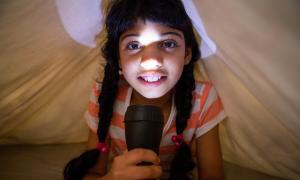I really should be practicing Aura Lee right now—or Merrily We Roll Along.I will soon be marching on stage, balancing my sheet music on the stand, wetting my reed, and playing the clarinet in front of parents, school board members, students, even the superintendent.How exactly did I get myself into this mess?It all started with a simple email.Pull out your instruments, Teachers, and join our Beginning Band students in their October concert….
